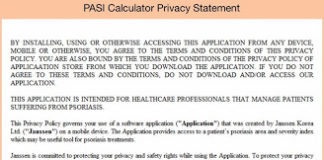 Many, many ePharma Pioneers — smart people who have long evangelized “e” for pharmaceutical marketing communications — keep up the pressure on the pharmaceutical industry to get more involved with social media marketing. I have documented this in many of my posts to Pharma Marketing Blog (see here) and in Pharma Marketing News articles (see a compilation here).
Many, many ePharma Pioneers — smart people who have long evangelized “e” for pharmaceutical marketing communications — keep up the pressure on the pharmaceutical industry to get more involved with social media marketing. I have documented this in many of my posts to Pharma Marketing Blog (see here) and in Pharma Marketing News articles (see a compilation here).
Michael Maher, Senior Partner at Greater Than One — an interactive agency with many pharma clients — is the latest person to hop on the pharma social media marketing bandwagon. In an article published today in Adotas (see “Pharma Companies and Social Media Marketing“), Maher states his case:
“There is no need for pessimism about the ability of pharmaceutical companies to use social media in their online marketing mix. The common belief is there are too many regulatory hurdles around reporting adverse events, presenting fair balance efficacy information, and avoiding endorsement of off-label usage. While it certainly isn’t as simple for pharma as it is for CPG, technology or entertainment marketers, many drug companies are beginning to use social media very effectively.”
Maher has some good advice and examples of how pharma marketers can get involved with social media. His examples, however, fail to impress me because all the sites are either run by non-pharma third parties (iguard, cafepharma) and are not product-related (except for the OTC alli site, which seems to have an authentic online community bulletin board).
There are no lessons here for marketers of branded Rx products who wish to set up product blogs and such, but who shy away from doing so because of “regulatory hurdles around reporting adverse events, presenting fair balance efficacy information, and avoiding endorsement of off-label usage.”
If, for example, Pfizer were to set up a blog about fibromyalgia and Lyrica — its drug for the treatment of fibromyalgia — it would open itself up to the receipt of adverse events submitted by self-identified patients. Pfizer would have to report all these to the FDA even if they did not publish the comments in the blog. The marketers of alli are not concerned with adverse event reporting because its not required for OTC products like alli.
Pfizer does not have a fibromyalgia or Lyrica blog, but it does have an unbranded Web site called “FibroCenter,” through which it solicits open-ended “Shared Stories and Tips” from visitors.
This is interesting because there’s a form on the site that allows people to just tell their stories, adverse events and all. Perhaps Pfizer is not concerned about AEs because most people filling out these forms want the reward of being mentioned on the site and they are not likely to mention side effects.
But if you think that Pfizer will just publish patient stories as submitted, you are mistaken. Storytellers give up all rights to their story, including the right to review edits made, according to the site’s consent form, which states:
“I grant my consent to use my name, biographical data and relevant medical history by Pfizer Inc in any Permitted Use identified below. Pfizer may at its/their sole discretion make any and all changes in, additions to, and deletions from the story and/or tips in ‘Share Your Story and Tips.’ Such alterations include, but are not limited to cuts, edits, additions, changes, rearrangement, adaptation of the story and/or tips to different formats, and other changes, additions and deletions necessary to make the ‘patient testimonial’ commercially viable [my emphasis]. With reference to the alterations referred to above, I hereby waive any and all claims I may now or hereafter have to the rights of integrity, disclosure and withdrawal and any other rights that may be known as or referred to as ‘moral rights.’ I understand that the selection and editing of the portions of the interviews to be used for any purpose shall be in the sole discretion of Pfizer Inc. “
I don’t have a problem with this — Pfizer is not claiming this is a social media site where patients can tell their stories in their own words. It does, however, give me some insight as to why pharmaceutical companies are not ready to do that.
It is obvious that in a top-down organization such as a pharmaceutical company, there is a great need to “control” the stories it publishes, and not just because it has to obey regulations. The stories have to made “commercially viable.” I suspect this means that everything in the story must be consistent with Pfizer’s marketing goals, which makes sense from a commercial point of view. But this is precisely why most companies — and not just drug companies — will never fully embrace true social media, which calls for unfettered and unedited user-generated content. It has nothing to do with adverse event reporting — that’s just a red herring.
Rate Your Readiness for Social Media Marketing









![6 Digital Tools at the Center of Healthcare Digitalization [INFOGRAPHIC]](http://ec2-54-175-84-28.compute-1.amazonaws.com/pharma-mkting.com/wp-content/uploads/2021/04/6DigitalTools_600px-100x70.jpg)




